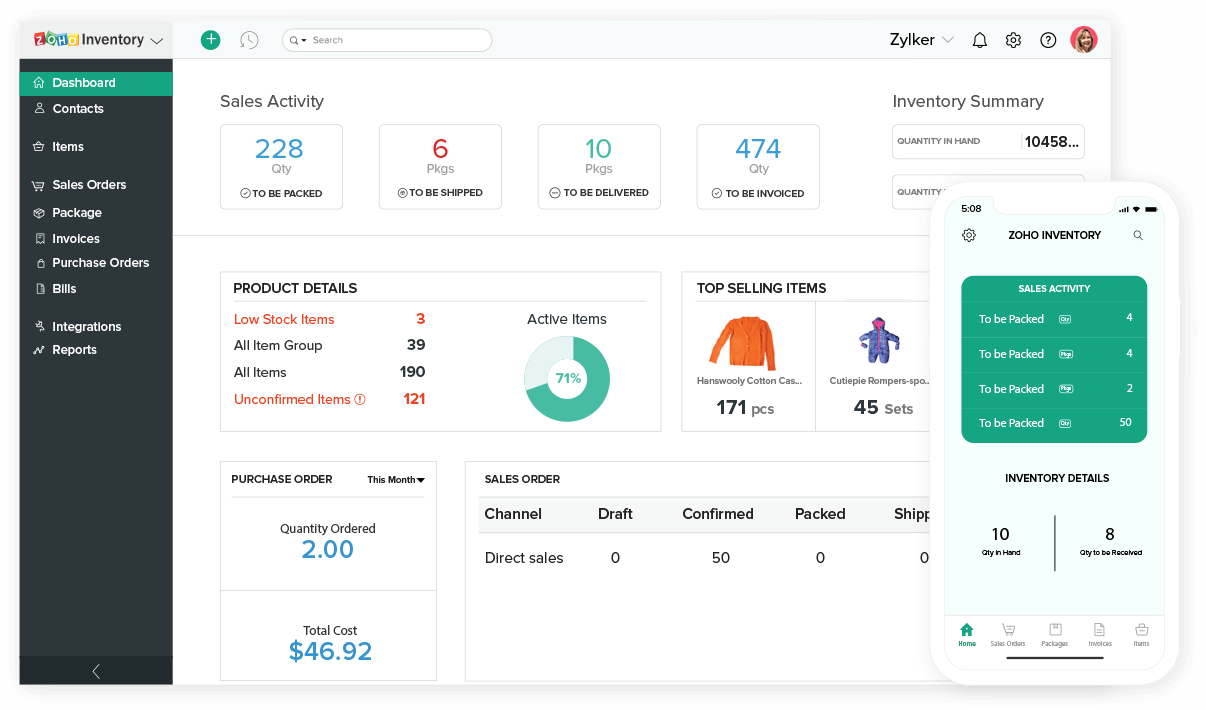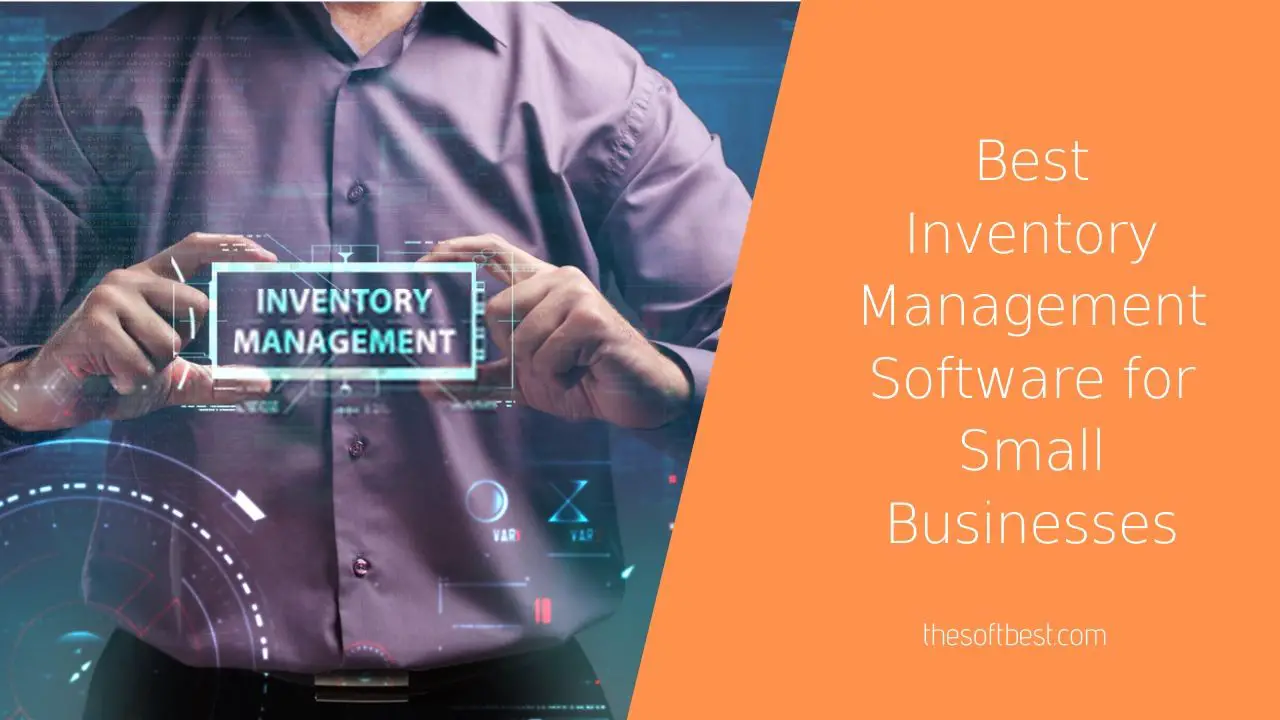Small businesses, rejoice! Inventory management just got easier. Dive into the world of best inventory management software for small businesses and discover how to streamline your operations, save time, and boost profits. With the right software, you’ll have a clear picture of your inventory levels, streamline order fulfillment, and make informed decisions to drive your business forward.
Introduction
Inventory management is a crucial aspect for small businesses to optimize their operations, minimize costs, and enhance customer satisfaction. It involves tracking, controlling, and managing the flow of goods, from raw materials to finished products, ensuring the right quantities are available at the right time. This article delves into the realm of inventory management software, analyzing the best options tailored specifically for small businesses.
Inventory Management Benefits
Effective inventory management brings forth numerous advantages for small businesses, including:
– Reduced costs: Minimizing excess inventory levels and optimizing stock levels can significantly reduce storage costs, waste, and obsolescence.
– Enhanced customer satisfaction: Accurate inventory tracking ensures that customers receive their orders promptly and efficiently, boosting satisfaction and loyalty.
– Improved cash flow: Optimized inventory management can free up cash flow by reducing the need for excessive inventory purchases and preventing the tying up of funds in slow-moving items.
– Increased efficiency: Automated inventory management systems streamline processes, saving time and resources that can be allocated to other critical business areas.
Key Features to Consider

When selecting inventory management software for your small business, it’s essential to consider the following key features:
- Inventory tracking: The software should provide real-time visibility into your inventory levels, allowing you to track stock on hand, in transit, and on order.
- Order management: The software should streamline your order processing workflow, from receiving orders to shipping and invoicing.
- Reporting and analytics: The software should provide robust reporting and analytics capabilities, enabling you to analyze inventory trends, identify slow-moving items, and optimize your inventory levels.
- Integrations with other business systems: The software should seamlessly integrate with your existing business systems, such as your accounting software, e-commerce platform, and CRM.
By considering these key features, you can select inventory management software that meets the specific needs of your small business and helps you streamline your inventory operations.
Top Software Options
Choosing the right inventory management software can help small businesses streamline their operations, reduce costs, and improve customer satisfaction. Here are some of the top options to consider:
When selecting software, it’s important to consider factors such as the size of your business, the types of products you sell, and your budget.
Key Features to Consider
- Inventory tracking
- Purchase order management
- Sales order processing
- Reporting and analytics
- Integration with other business systems
Top Software Options
- Zoho Inventory
- Features: Multi-channel inventory management, purchase order management, sales order processing, reporting and analytics, and integration with other Zoho applications.
- Pricing: Starting at $49 per month
- NetSuite
- Features: Comprehensive inventory management, order management, accounting, and customer relationship management (CRM) in a single platform.
- Pricing: Starting at $999 per month
- SAP Business One
- Features: End-to-end business management solution for small businesses, including inventory management, financials, sales, and customer service.
- Pricing: Starting at $1,500 per month
- Fishbowl Inventory
- Features: Inventory management software designed specifically for small businesses, with a focus on ease of use and affordability.
- Pricing: Starting at $499 per user
- Ordoro
- Features: Cloud-based inventory management software with a focus on e-commerce businesses, offering features such as order fulfillment, shipping, and tracking.
- Pricing: Starting at $49 per month
Comparison of Software

Now that we have explored the key features to consider when choosing inventory management software for your small business, let’s compare some of the top options available.
The following table provides a side-by-side comparison of four popular software solutions, highlighting their key features, pricing, and pros and cons.
Software Comparison Table
| Software Name | Key Features | Pricing | Pros and Cons |
|---|---|---|---|
| Option 1 |
|
|
|
| Option 2 |
|
|
|
| Option 3 |
|
|
|
| Option 4 |
|
|
|
Choosing the Right Software

Selecting the most suitable inventory management software for your small business requires careful consideration of several key factors. These include your business’s size and specific needs, industry-specific requirements, and budget and resource constraints.
Business Size and Needs
The size of your business and the complexity of your inventory management processes will influence the type of software you need. Small businesses with a limited number of products and transactions may find basic inventory management software sufficient. However, larger businesses with complex inventory systems and multiple locations may require more advanced software with features such as multi-warehouse management, advanced reporting, and integration with other business systems.
Industry-Specific Requirements
Consider the specific requirements of your industry when choosing inventory management software. Different industries have unique inventory management challenges, such as:
- Retail: Tracking inventory levels across multiple stores and managing customer orders
- Manufacturing: Managing raw materials, work-in-progress, and finished goods inventory
- Healthcare: Tracking medical supplies and ensuring compliance with regulatory requirements
Choose software that caters to the specific needs of your industry to ensure efficient and accurate inventory management.
Budget and Resources
The cost of inventory management software can vary significantly depending on the features and capabilities offered. Consider your budget and available resources when selecting software. While it’s important to invest in a software that meets your needs, it’s equally crucial to avoid overspending on features you may not require.
Implementation and Best Practices
Effective implementation and utilization of inventory management software are crucial for optimizing inventory management processes. Implementing best practices ensures accurate data, efficient operations, and informed decision-making.
Key practices include:
Data Entry and Maintenance
- Establish clear guidelines for data entry, including product descriptions, SKUs, and quantities.
- Train staff on proper data entry techniques to minimize errors.
- Regularly review and update inventory data to ensure accuracy.
Inventory Optimization Techniques, Best inventory management software for small business
- Implement inventory control methods such as ABC analysis and safety stock calculations.
- Optimize inventory levels to minimize carrying costs while ensuring sufficient stock to meet demand.
- Use the software’s reporting capabilities to identify slow-moving items and implement appropriate strategies.
Regular Reporting and Analysis
- Generate regular reports on inventory levels, turnover rates, and stock discrepancies.
- Analyze reports to identify trends, optimize inventory management, and improve forecasting accuracy.
- Use the software’s reporting tools to track inventory performance and make data-driven decisions.
Conclusion
Choosing the right inventory management software can streamline operations, reduce costs, and improve customer satisfaction. By considering the key features discussed in this article, small businesses can make an informed decision that meets their specific needs. Remember, effective inventory management is crucial for business growth and success.
Take the next step in optimizing your inventory management by researching the software options presented. Consider your business requirements, budget, and desired outcomes. By implementing the right solution, you can unlock the benefits of improved inventory control, increased efficiency, and enhanced profitability.
Wrap-Up: Best Inventory Management Software For Small Business
Choosing the right inventory management software for your small business is crucial for success. Consider your business needs, budget, and industry-specific requirements. By implementing best practices and leveraging the power of technology, you’ll gain control over your inventory, optimize operations, and stay ahead of the competition. Remember, the best inventory management software is the one that empowers you to grow your business and achieve your goals.
Frequently Asked Questions
What are the benefits of using inventory management software?
Inventory management software provides numerous benefits, including real-time inventory tracking, automated order processing, improved accuracy, reduced costs, and enhanced customer satisfaction.
How do I choose the right inventory management software for my small business?
Consider your business size, industry, budget, and specific needs. Look for software that offers features tailored to your requirements, such as inventory tracking, order management, reporting, and integrations with other business systems.
What are some best practices for implementing inventory management software?
Ensure accurate data entry, optimize inventory levels, regularly review reports, and leverage automation features to streamline processes and improve efficiency.